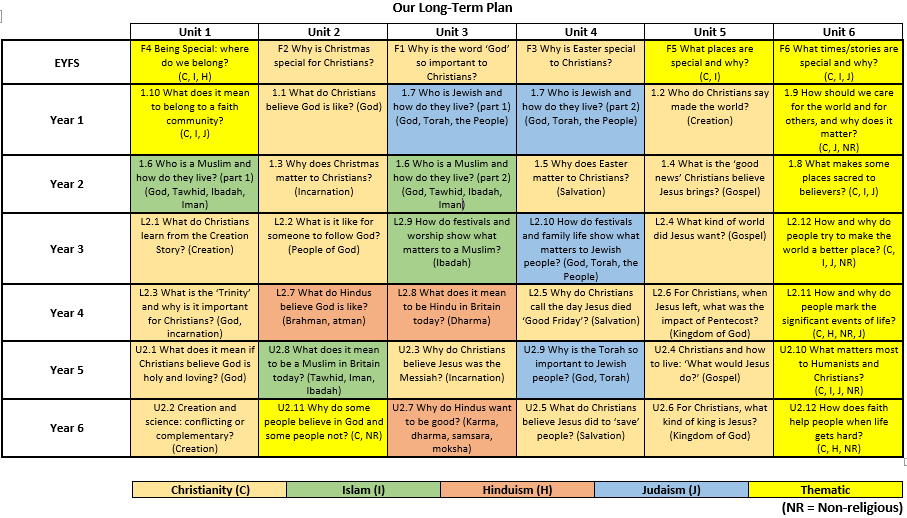Religious Education
Intent
At Little Hill school we offer a curriculum which is balanced and broadly based, and which:
- Promotes the spiritual, moral, cultural, mental and physical development of pupils at the school and of society, and:
- Prepares pupils at the school for the opportunities, responsibilities and experiences of later life.
- Actively promotes our chosen six values (Aiming High, Daring to be Different, More than Just Me, How well did I do?, I can do it! and Thinking for Myself) and the core British values (Democracy, the rule of law, Individual liberty, mutual respect for and tolerance of those with different faiths and beliefs and for those without faith).
The principal aim of RE is to engage pupils in systematic enquiry into significant human questions which religion and worldviews address, so that they can develop the understanding and skills needed to appreciate and appraise varied responses to these questions, as well as develop responses of their own.
Units are titled with a ‘key question’. This is thing operationalised into smaller ‘key questions’ – each of these will take up at least one lesson if not more (at the class teacher’s discretion).
Through the RE curriculum, we also celebrate 6 festivals/significant religious events: Diwali (Hinduism), Hanukkah (Judaism), Chinese New Year, Ramadan (Islam), Easter (Christianity), Vaisakhi (Sikhism). There is a progression map for each of these detailing what the children learn/enrichment they are exposed to (these include visits to places of worship).
Implementation
At Little Hill, we have 3 core strands that run through our Religious Education curriculum. Each strand has a progression in knowledge and skills, detailed in this document, that link the key questions together.
- Making sense of our beliefs - Identifying and making sense of core religious and non-religious beliefs and concepts; understanding what these beliefs mean within their traditions; recognising how and why sources of authority (such as texts) are used, expressed and interpreted in different ways, and developing skills of interpretation.
- Understanding and impact - Examining how and why people put their beliefs into action in diverse ways, within their everyday lives, within their communities and in the wider world.
- Making connections - Evaluating, reflecting on and connecting the beliefs and practices studied; allowing pupils to challenge ideas studied, and the ideas studied to challenge pupils’ thinking; discerning possible connections between these and pupils’ own lives and ways of understanding the world.

Collective Worship
Staff and children meet for daily collective worship, which takes a variety of forms. The content of our assemblies encourages a positive school ethos of caring, understanding and tolerance for all. Assemblies are used to reinforce and develop our school standards, school values and British values.
